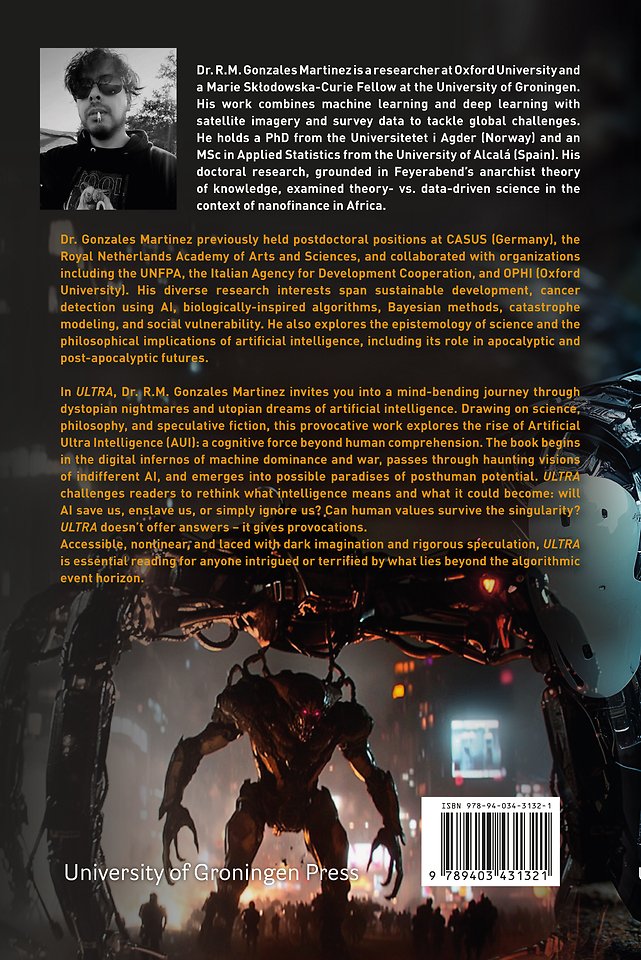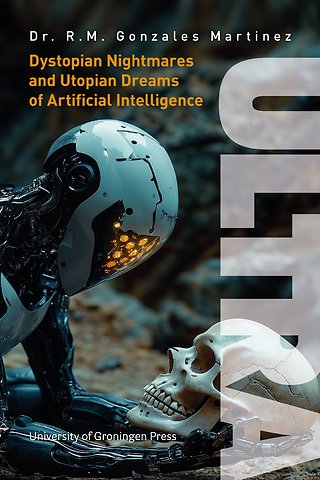Ultra
Dystopian Nightmares and Utopian Dreams of Artificial Intelligence
Samenvatting
In ULTRA, R.M. Gonzales Martinez invites you into a mind-bending journey through dystopian nightmares and utopian dreams of artificial intelligence. Drawing on science, philosophy, and speculative fiction, this provocative work explores the rise of Artificial Ultra Intelligence (AUI): a cognitive force beyond human comprehension.
Structured like a modern Divine Comedy, the book begins in the digital infernos of machine dominance and war, passes through haunting visions of indifferent AI, and emerges into possible paradises of posthuman potential. With references ranging from Descartes and Nietzsche to The Matrix and thought experiments like “I Have No Mouth, and I Must Scream,” ULTRA challenges readers to rethink what intelligence means and what it could become.
Will AI save us, enslave us, or simply ignore us? Can human values survive the singularity? ULTRA doesn’t offer answers - it gives provocations.
Accessible, nonlinear, and laced with dark imagination and rigorous speculation, ULTRA is essential reading for anyone intrigued or terrified by what lies beyond the algorithmic event horizon
Dr. R.M. Gonzales Martinez is a researcher at Oxford University and a Marie Skłodowska-Curie Fellow at the University of Groningen. His work combines machine learning and deep learning with satellite imagery and survey data to tackle global challenges. He holds a PhD from the Universitetet i Agder (Norway) and an MSc in Applied Statistics from the University of Alcalá (Spain). His doctoral research, grounded in Feyerabend’s anarchist theory of knowledge, examined theory- vs. data-driven science in the context of nanofinance in Africa.
Dr. Gonzales Martinez previously held postdoctoral positions at CASUS (Germany), the Royal Netherlands Academy of Arts and Sciences, and collaborated with organizations including the UNFPA, the Italian Agency for Development Cooperation, and OPHI (Oxford University). His diverse research interests span sustainable development, cancer detection using AI, biologically-inspired algorithms, Bayesian methods, catastrophe modeling, and social vulnerability. He also explores the epistemology of science and the philosophical implications of artificial intelligence, including its role in apocalyptic and post-apocalyptic futures.







